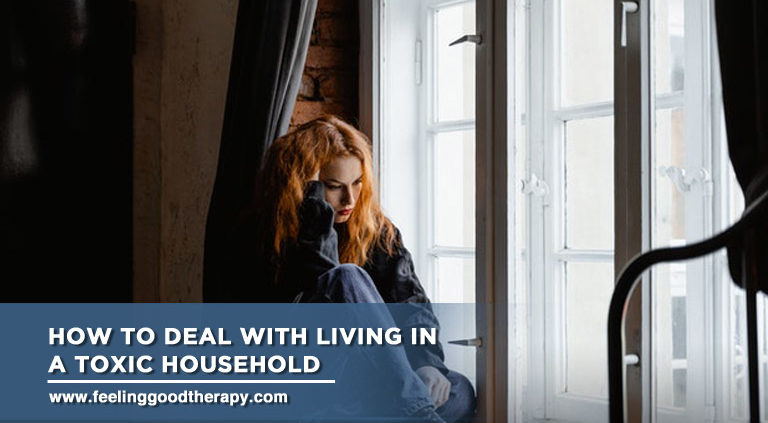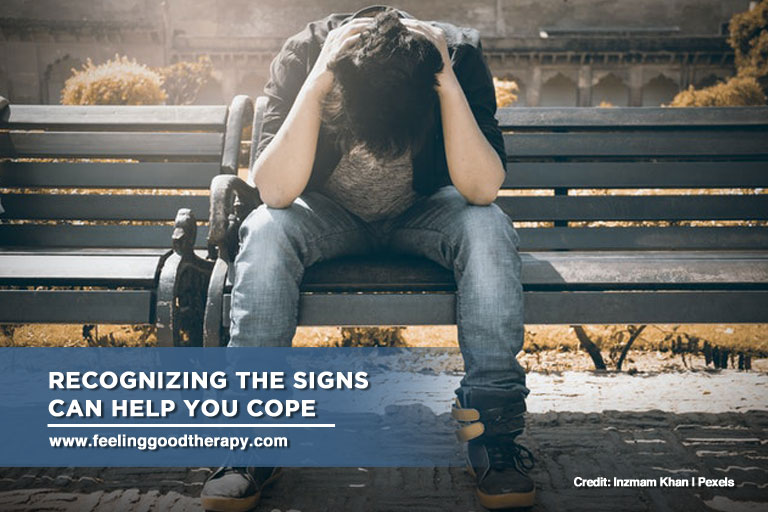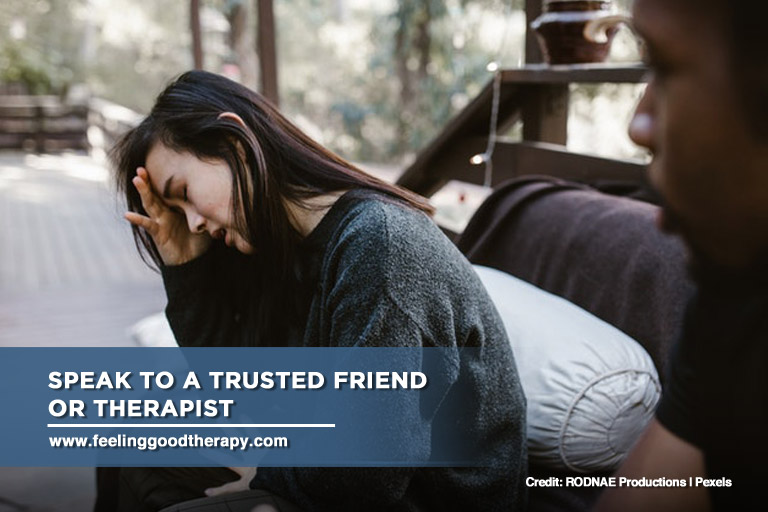How to Deal With Living in a Toxic Household
When you’re in your own home, you should feel safe to be yourself. Home should be a place where you can share your struggles, overcome your challenges, and be supported along the way.
Unfortunately, many people don’t experience home in this way. There are people in their family — living in their household — who aren’t safe. In fact, the individuals may be toxic to your personal sense of safety, growth, and fulfillment.
How do you know if you are living in a toxic household, and what can you do to cope? Here are some tips.
Signs You’re in a Toxic Household
You might feel frustrated or hurt by interactions with family members at home, but you probably wonder if they are truly “toxic.” One of the most common traits of someone affected by toxic family is that they think “it’s not that bad.”
The truth is, if you’re feeling hurt or damaged, it is that bad when it comes to your personal experience. That’s enough for you to get help from a compassionate, trained therapist.
However, it can help to have validation and understand what behaviours are truly toxic. Here are some of the signs that you’re dealing with a toxic family household:
- People make critical and cruel remarks to each other
- They lie about, or are in denial about, family dynamics
- Family members punish each other with silence or withholding affection
- People talk behind each other’s backs
- Family members dismiss others who bring up hurt feelings or bad interactions
- One or more household members expect the others to be perfect or live up to ever-moving expectations
- There are threats of violence and/or actual violence
- There is a lot of passive-aggressive behaviour
- Family members gaslight each other by denying that hurtful events happened
These are just the most common signs — to include every sign of a toxic household would take up an entire book, unfortunately. If you feel like you’re the victim of a toxic household, it’s time to break the cycle by getting the help you need.
Remember That Toxic People Also Had Toxic Experiences
People generally aren’t born angry, resentful, controlling, or passive-aggressive. Usually they had experiences growing up that create those attitudes in them and showed them that this behaviour is okay.
That doesn’t excuse what they’re doing, and it doesn’t make the behaviour OK. However, it can help you understand the generational pattern at work and give you some compassion for where they came from.
It’s also important to realize that because people generally repeat the behaviour they experience, you’re at risk of creating your own toxic household if you don’t get the help you need to break the cycle. This might look like belittling your own kids, being passive-aggressive with a spouse, or leaving a toxic relationship only to enter anothqweqweqweer one shortly afterward.
Breaking the cycle is one of the most courageous things you can do, and it’s much easier with the help of an understanding therapist.
Living With Toxic Family Members
If you’re in a situation where you can’t leave your current household, how do you deal with toxic family members? There are a variety of strategies, and we’ll dive into several here.
Don’t Be Afraid to Call the Authorities
We’re going to talk about coping with non-criminal toxic behaviour in a minute, but I want to make this important point first — if you are being physically or sexually abused, call the authorities right away.
It is never OK for someone to assault you. If someone does that, they need to be held accountable for their actions. Don’t let them intimidate you by claiming things will get worse if they leave. We all find ways to survive and the abuser must be stopped. Call 911 if you are being abused.
Set Clear Boundaries
Your family may not respect boundaries well, but by setting boundaries and sticking to them, you’re standing up for yourself and showing yourself that you’re valuable and deserve care. You can decide what kind of treatment you’ll accept and won’t accept.
You can start with requests for different behaviour, such as “I don’t appreciate being yelled at, please talk to me in a normal tone.” If they don’t comply, follow through with a consequence, such as walking away from the situation in that moment and going to your room or perhaps out for a drive.
Limit What You Share
Even if you have to live with toxic family members, you can set limits on how much you let them in to your internal life. Even your mom doesn’t need to know your deepest secrets or struggles if she cannot be trusted with them. The same is true for your dad, siblings, or anyone else in the household.
Limiting what you share at home can be isolating, but it protects you from being belittled or making poor decisions due to pressure. Find someone outside your home that you can share with in confidence, such as a therapist, a wise friend, or another trustworthy person.
Let Go of Your Expectations for Others’ Lives
This might be one of the hardest steps to take when you have toxic family members, but you have to let go of who you want them to be. Perhaps your mom will never be the mom you’ve seen on TV sitcoms. Maybe you and your sibling will never be close.
The truth is you can’t control other people’s lives or make decisions for them. However, you are in full control of your own life. You can choose to move on as soon as possible and let your family members be who they’re going to be.
How to Leave a Toxic Household
Living with toxic family members is damaging, and if you can leave, it’s a good idea to do so. However, it’s important to keep your plans to yourself until you can fully execute them.
You’ll need to create a detailed plan that includes:
- Where you’re going to go
- Saving up money for the move
- A job to support yourself and pay your own bills
- Who you’re going to live with, if anyone
It’s common for people who are in toxic situations to leave but then shortly end up in another toxic situation. In order to avoid being drawn back to what’s familiar (but harmful) to you, get the help you need in the form of professional therapy.
Get Help Coping Today
Living in a toxic household can cause a lot of damage to your confidence and mental health. Getting the help you need can allow you to break the cycle and create a healthy living space.
If you’re ready to break free, set up an appointment with Dr. Dashtban today!





